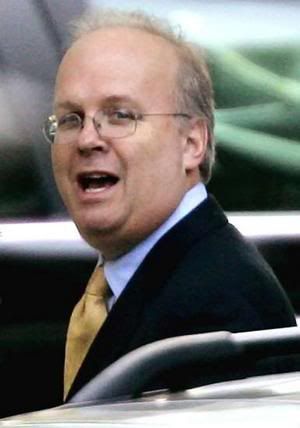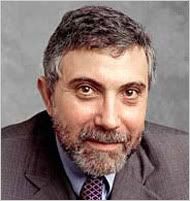
In my opinion, the finest Democrat in Washington today is Congressman Henry Waxman. Waxman represents California’s 30th congressional district and is the Chairman for the committee of Oversight and Government Reform. His committee issued a statement today about the Republican National Committee’s use of White House email accounts.
Waxman is a dogged investigator and it appears there may be enough evidence to initiate impeachment proceedings against Attorney General Alberto Gonzales who knowingly allowed the law to be violated while serving as White House Counsel.
Click here to read the statement at the committee’s website directly or refer to my copy and paste job below.
******************************************************************************The Oversight Committee has been investigating whether White House officials violated the Presidential Records Act by using e-mail accounts maintained by the Republican National Committee and the Bush Cheney ‘04 campaign for official White House communications. This interim staff report provides a summary of the evidence the Committee has received to date, along with recommendations for next steps in the investigation.
The information the Committee has received in the investigation reveals: - The number of White House officials given RNC e-mail accounts is higher than previously disclosed. In March 2007, White House spokesperson Dana Perino said that only a “handful of officials” had RNC e-mail accounts. In later statements, her estimate rose to “50 over the course of the administration.” In fact, the Committee has learned from the RNC that at least 88 White House officials had RNC e-mail accounts. The officials with RNC e-mail accounts include Karl Rove, the President’s senior advisor; Andrew Card, the former White House Chief of Staff; Ken Mehlman, the former White House Director of Political Affairs; and many other officials in the Office of Political Affairs, the Office of Communications, and the Office of the Vice President.
- White House officials made extensive use of their RNC e-mail accounts. The RNC has preserved 140,216 e-mails sent or received by Karl Rove. Over half of these e-mails (75,374) were sent to or received from individuals using official “.gov” e-mail accounts. Other heavy users of RNC e-mail accounts include former White House Director of Political Affairs Sara Taylor (66,018 e-mails) and Deputy Director of Political Affairs Scott Jennings (35,198 e-mails). These e-mail accounts were used by White House officials for official purposes, such as communicating with federal agencies about federal appointments and policies.
- There has been extensive destruction of the e-mails of White House officials by the RNC. Of the 88 White House officials who received RNC e-mail accounts, the RNC has preserved no e-mails for 51 officials. In a deposition, Susan Ralston, Mr. Rove’s former executive assistant, testified that many of the White House officials for whom the RNC has no e-mail records were regular users of their RNC e-mail accounts. Although the RNC has preserved no e-mail records for Ken Mehlman, the former Director of Political Affairs, Ms. Ralston testified that Mr. Mehlman used his account “frequently, daily.” In addition, there are major gaps in the e-mail records of the 37 White House officials for whom the RNC did preserve e-mails. The RNC has preserved only 130 e-mails sent to Mr. Rove during President Bush’s first term and no e-mails sent by Mr. Rove prior to November 2003. For many other White House officials, the RNC has no e-mails from before the fall of 2006.
- There is evidence that the Office of White House Counsel under Alberto Gonzales may have known that White House officials were using RNC e-mail accounts for official business, but took no action to preserve these presidential records. In her deposition, Ms. Ralston testified that she searched Mr. Rove’s RNC e-mail account in response to an Enron-related investigation in 2001 and the investigation of Special Prosecutor Patrick Fitzgerald later in the Administration. According to Ms. Ralston, the White House Counsel’s office knew about these e-mails because “all of the documents we collected were then turned over to the White House Counsel’s office.” There is no evidence, however, that White House Counsel Gonzales initiated any action to ensure the preservation of the e-mail records that were destroyed by the RNC.
The Presidential Records Act requires the President to “take all such steps as may be necessary to assure that the activities, deliberations, decisions, and policies that reflect the performance of his constitutional, statutory, or other official or ceremonial duties are adequately documented … and maintained as Presidential records.” To implement this legal requirement, the White House Counsel issued clear written policies in February 2001 instructing White House staff to use only the official White House e-mail system for official communications and to retain any official e-mails they received on a nongovernmental account.
The evidence obtained by the Committee indicates that White House officials used their RNC e-mail accounts in a manner that circumvented these requirements. At this point in the investigation, it is not possible to determine precisely how many presidential records may have been destroyed by the RNC. Given the heavy reliance by White House officials on RNC e-mail accounts, the high rank of the White House officials involved, and the large quantity of missing e-mails, the potential violation of the Presidential Records Act may be extensive.
There are several next steps that should be pursued in the investigation into the use of RNC e-mail accounts by White House officials. First, the records of federal agencies should be examined to assess whether they may contain some of the White House e-mails that have been destroyed by the RNC. The Committee has already written to 25 federal agencies to inquire about the e-mail records they may have retained from White House officials who used RNC and Bush Cheney ’04 e-mail accounts. Preliminary responses from the agencies indicate that they may have preserved official communications that were destroyed by the RNC.
Second, the Committee should investigate what former White House Counsel Alberto Gonzales knew about the use of political e-mail accounts by White House officials. If Susan Ralston’s testimony to the Committee is accurate, there is evidence that Mr. Gonzales or counsels working in his office knew in 2001 that Karl Rove was using his RNC e-mail account to communicate about official business, but took no action to preserve Mr. Rove’s official communications.
Third, the Committee may need to issue compulsory process to obtain the cooperation of the Bush Cheney ’04 campaign. The campaign has informed the Committee that it provided e-mail accounts to 11 White House officials, but the campaign has unjustifiably refused to provide the Committee with basic information about these accounts, such as the identity of the White House officials and the number of e-mails that have been preserved.
 My apologies for not posting anything in recent days. A brutal combination of illness and my day job intervened.
My apologies for not posting anything in recent days. A brutal combination of illness and my day job intervened.
